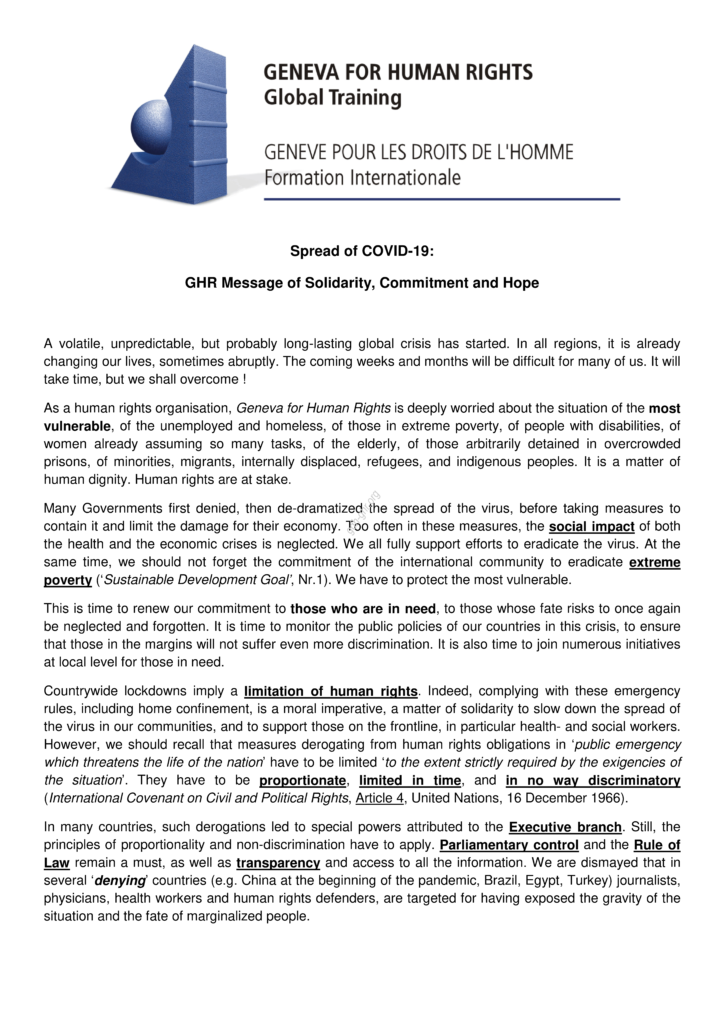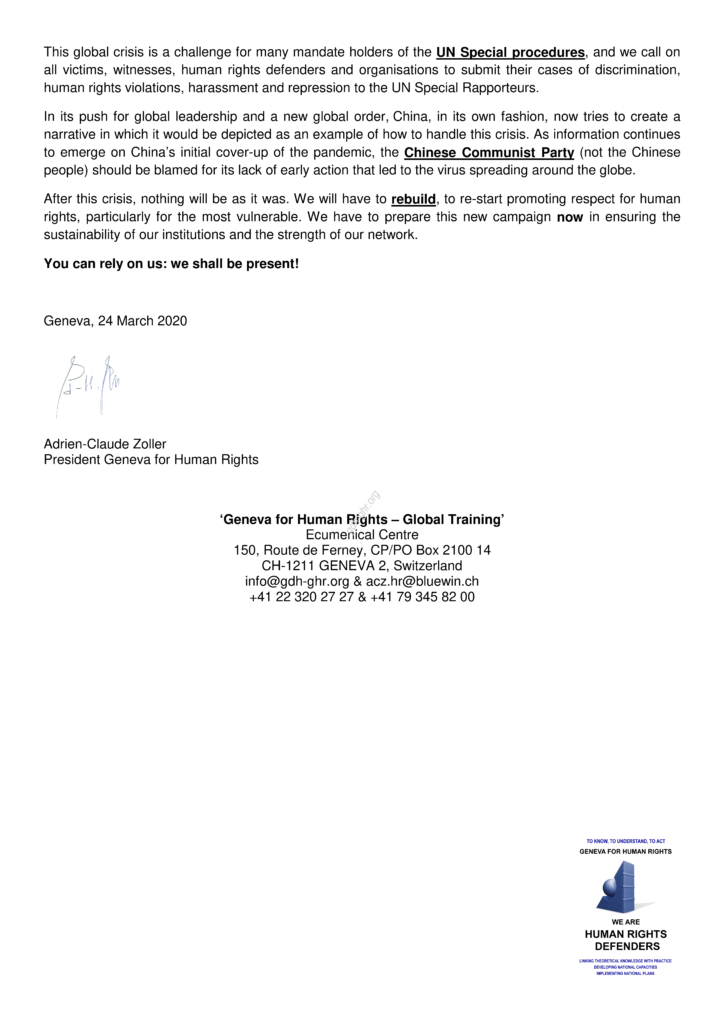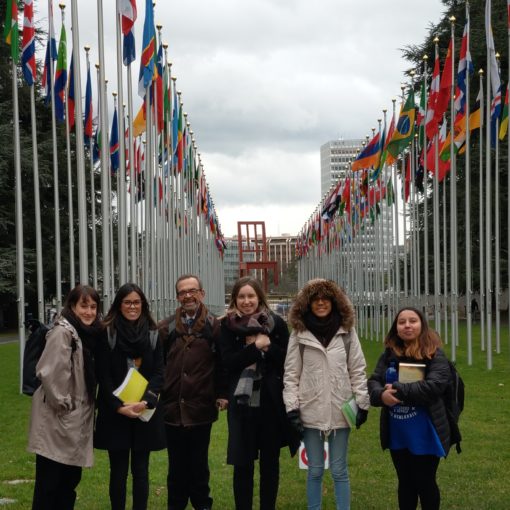
A volatile, unpredictable, but probably long-lasting global crisis has started. In all regions, it is already changing our lives, sometimes abruptly. The coming weeks and months will be difficult for many of us. It will take time, but we shall overcome !
As a human rights organisation, Geneva for Human Rights is deeply worried about the situation of the most vulnerable, of the unemployed and homeless, of those in extreme poverty, of people with disabilities, of women already assuming so many tasks, of the elderly, of those arbitrarily detained in overcrowded prisons, of minorities, migrants, internally displaced, refugees, and indigenous peoples. It is a matter of human dignity. Human rights are at stake.
Many Governments first denied, then de-dramatized the spread of the virus, before taking measures to contain it and limit the damage for their economy. Too often in these measures, the social impact of both the health and the economic crises is neglected. We all fully support efforts to eradicate the virus. At the same time, we should not forget the commitment of the international community to eradicate extreme poverty (‘Sustainable Development Goal’, Nr.1). We have to protect the most vulnerable.
This is time to renew our commitment to those who are in need, to those whose fate risks to once again be neglected and forgotten. It is time to monitor the public policies of our countries in this crisis, to ensure that those in the margins will not suffer even more discrimination. It is also time to join numerous initiatives at local level for those in need.
Countrywide lockdowns imply a limitation of human rights. Indeed, complying with these emergency rules, including home confinement, is a moral imperative, a matter of solidarity to slow down the spread of the virus in our communities, and to support those on the frontline, in particular health- and social workers. However, we should recall that measures derogating from human rights obligations in ‘public emergency which threatens the life of the nation’ have to be limited ‘to the extent strictly required by the exigencies of the situation’. They have to be proportionate, limited in time, and in no way discriminatory (International Covenant on Civil and Political Rights, Article 4, United Nations, 16 December 1966).
In many countries, such derogations led to special powers attributed to the Executive branch. Still, the principles of proportionality and non-discrimination have to apply. Parliamentary control and the Rule of Law remain a must, as well as transparency and access to all the information. We are dismayed that in several ‘denying’ countries (e.g. China at the beginning of the pandemic, Brazil, Egypt, Turkey) journalists, physicians, health workers and human rights defenders, are targeted for having exposed the gravity of the situation and the fate of marginalized people.
This global crisis is a challenge for many mandate holders of the UN Special procedures, and we call on all victims, witnesses, human rights defenders and organisations to submit their cases of discrimination, human rights violations, harassment and repression to the UN Special Rapporteurs.
In its push for global leadership and a new global order, China, in its own fashion, now tries to create a narrative in which it would be depicted as an example of how to handle this crisis. As information continues to emerge on China’s initial cover-up of the pandemic, the Chinese Communist Party (not the Chinese people) should be blamed for its lack of early action that led to the virus spreading around the globe.
After this crisis, nothing will be as it was. We will have to rebuild, to re-start promoting respect for human rights, particularly for the most vulnerable. We have to prepare this new campaign now in ensuring the sustainability of our institutions and the strength of our network.
You can rely on us: we shall be present!
Geneva, 24 March 2020







